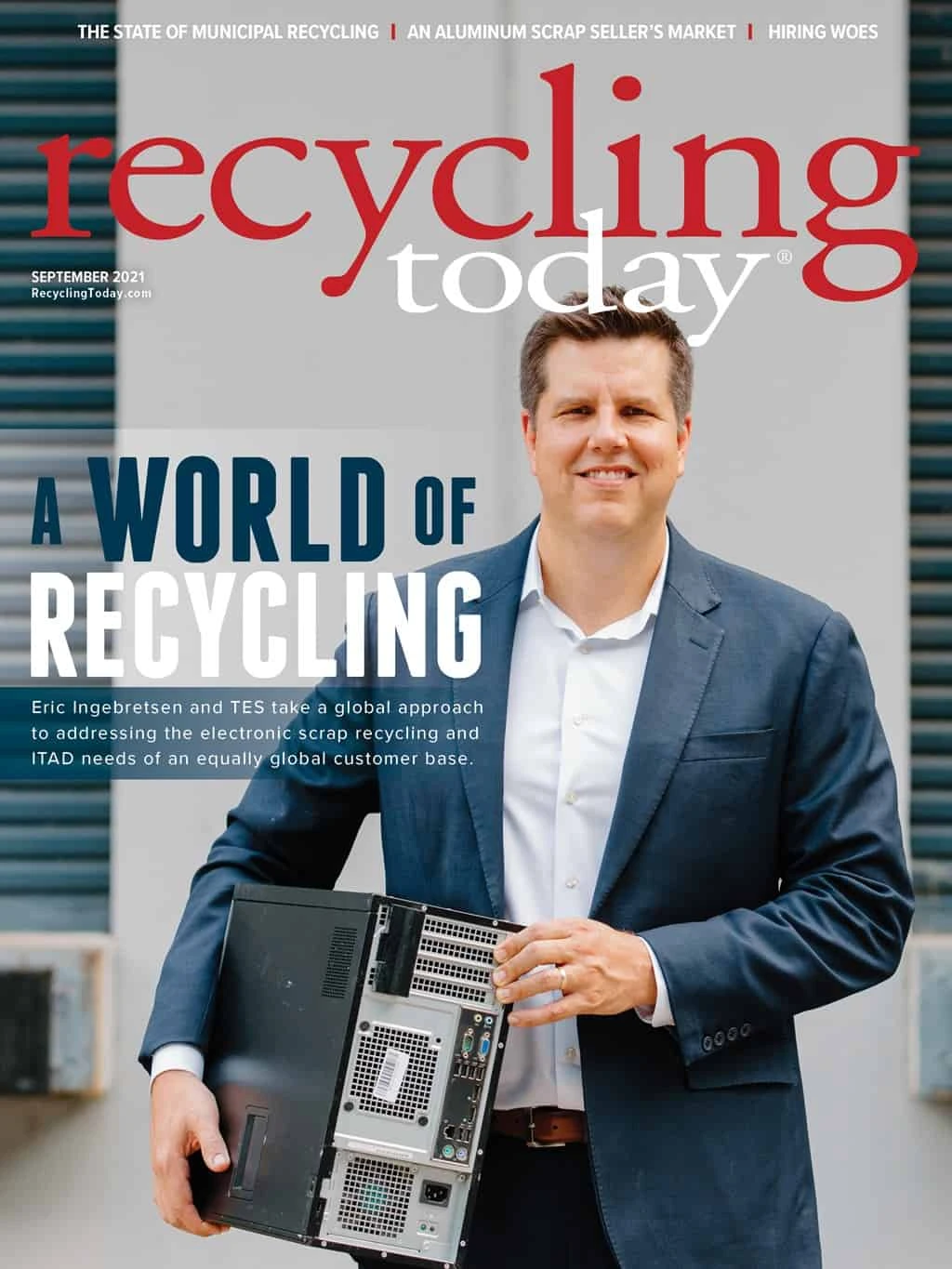Virtually everyone I’ve talked to in recent months, whether a material recovery facility operator, a scrap metal processor or a plastics reclaimer, has mentioned having a record-high number of open positions within their companies and difficulty finding people to fill those positions. The situation is affecting the number of shifts they operate in some instances or whether they operate certain facilities at all in others. Processing volumes have been affected as a result.
Some people in the industry think increased unemployment benefits are to blame, while others say the benefits are one factor in a complex web of issues brought to light by the pandemic.
According to an article in Inc. by Sharon Poczter, chair of the Strategy and Entrepreneurship Department at Yeshiva University, “People have left the workforce for a variety of reasons, including the fact that child care is more expensive than wages (and schools have opened before businesses), people were and remain afraid of going back to work in some industries because of health safety, and, yes, of course, if a greater financial benefit from staying unemployed versus working exists, then workers may choose to stay home. This financial benefit may also allow workers to be more selective with the jobs they choose and take time in doing so. This would be particularly true for those unemployed with more time left in their careers and less financial responsibility.”
The situation is hitting small businesses particularly hard because it also is putting upward pressure on wages, she adds.
”Virtually everyone I’ve talked to in recent months has mentioned having a record-high number of open positions within their companies and difficulty finding people to fill those positions.”
In the article “Employees wanted,” Bill Keegan of Dem-Con Cos. shares that his company has raised wages for its workers and has improved its benefits package in an effort to attract and retain employees. Dem-Con is spending about three times more on recruitment efforts, too.
Company culture also might need to be addressed. MetLife, in its “19th Annual U.S. Employee Benefit Trends Study 2021,” says “employers should rethink their responsibilities to their employees—and create a holistic work culture that addresses changing priorities in safety, mental health and more.”
Which brings us to another topic covered in this issue: mental health and its connection to workplace safety.
The pandemic has affected the physical health of some employees, but it arguably has affected the mental health of most employees as they struggle with increased workloads, a blurring of boundaries between their homes and workplaces in some instances and reduced child care options.
Sarah Bolton and Jason Todaro of Blue Ridge Services offer advice to employers on how to normalize talking about stress and mental health in the workplace.
Recycling Today would like to hear more about how you’re handling these concerns in your workplace. Let us know by emailing me at dtoto@gie.net.

Explore the September 2021 Issue
Check out more from this issue and find your next story to read.
Latest from Recycling Today
- Orion ramping up Rocky Mountain Steel rail line
- Proposed bill would provide ‘regulatory clarity’ for chemical recycling
- Alberta Ag-Plastic pilot program continues, expands with renewed funding
- ReMA urges open intra-North American scrap trade
- Axium awarded by regional organization
- Update: China to introduce steel export quotas
- Thyssenkrupp idles capacity in Europe
- Phoenix Technologies closes Ohio rPET facility





